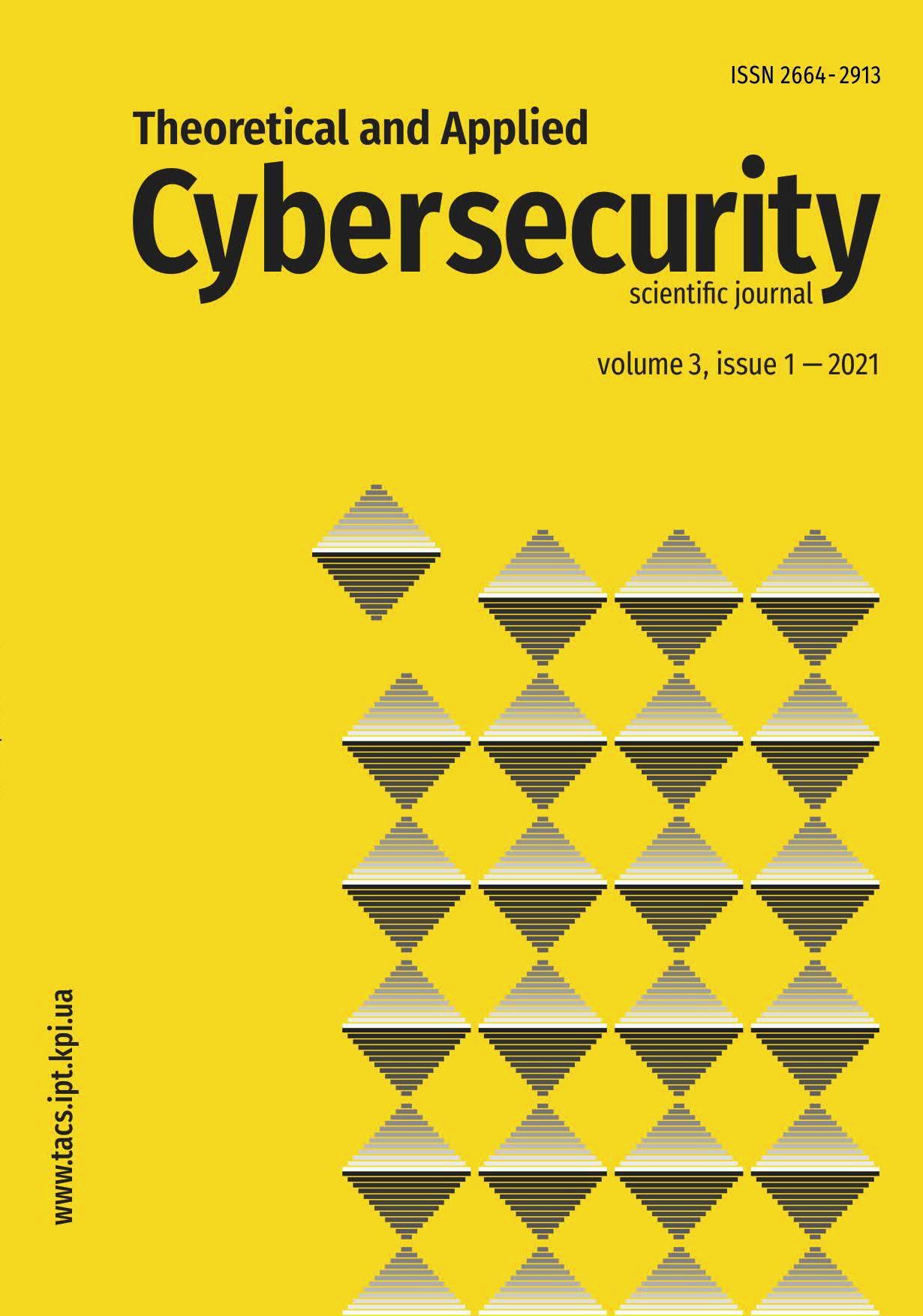On the Generator of Stable Cubical Multivariate Encryption Maps Over Boolean Rings for Protection of Large Information System
DOI:
https://doi.org/10.20535/tacs.2664-29132021.1.251293Abstract
Encryption based on Walks in Algebraic GRAphs (EWAGRA) is used for protection of authors' rights, access to electronic books or documents located at a certain knowledge base (Information Quality Assurance Support Systems of a university, digital library supporting distance education, various digital archives and etc). The method allows generating nonlinear stream ciphers, which have some similarities with a one-time pad: different keys produce distinct ciphertexts from the same plaintext. In contrast to the case of a one-time pad, the length of the key is flexible and the encryption map is a nonlinear poly- nomial map, which order is growing with the growth of the dimension n of the plaintext space. The encryption has good resistance to attacks of the adversary when he has no access to plaintext space or has a rather small number of intercepted plaintext- ciphertext pairs. It is known that encryption and decryption maps are cubical maps. So, interception of n3 + O(n) plaintext-ciphertext pairs allows conducting a plain linearization attack for finding the inverse map. We consider the idea of the modification of this encryption algorithm after sending each message without using key exchange protocols. So the new algorithm is resistant to plain linearization attacks.
Downloads
Published
Issue
Section
License
Authors who publish with this journal agree to the following terms:
Authors retain copyright and grant the journal right of first publication with the work simultaneously licensed under a Creative Commons Attribution License that allows others to share the work with an acknowledgement of the work's authorship and initial publication in this journal.
Authors are able to enter into separate, additional contractual arrangements for the non-exclusive distribution of the journal's published version of the work (e.g., post it to an institutional repository or publish it in a book), with an acknowledgement of its initial publication in this journal.
- Authors are permitted and encouraged to post their work online (e.g., in institutional repositories or on their website) prior to and during the submission process, as it can lead to productive exchanges, as well as earlier and greater citation of published work (See The Effect of Open Access).

